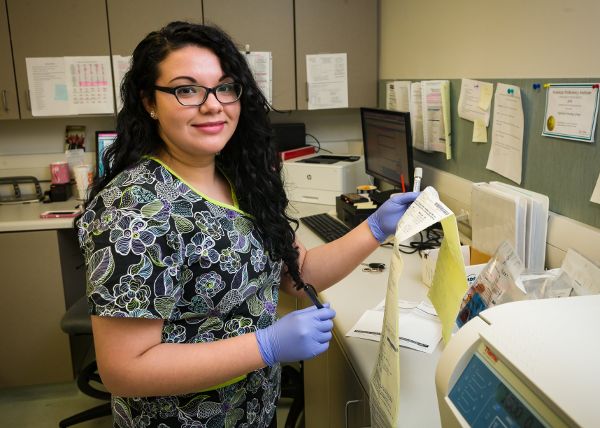What To Expect with Radiation Therapy Treatment
What to Expect During Radiation Therapy Treatment
Every patient has a unique history, anatomy and cancer presentation. Consequently, radiation treatment is individualized for each patient depending on many factors including their overall health, the size and location of their cancer, and the prior treatment. In order to tailor radiation treatment to meet the specific needs of each patient, the preparation process involves several components.
Consultation (Your First Visit)
The consultation is an important visit that allows both you and your doctor (radiation oncologist) to meet each other and collect the information necessary to begin your treatment. At Highlands Oncology, our goal is to make this process as easy as possible, so you may concentrate on your overall well-being. Many patients find it helpful to prepare for the consultation by bringing x-rays, a list of medications, insurance information, and referral forms.
Visit with Highlands Radiation Oncology Professionals
You will first meet with a receptionist who will obtain information that will assist us in processing your Medicare or insurance claims. One of our radiation oncology nurses will then discuss your medical history with you and obtain medical information that will be helpful to our doctors when they discuss your treatment options. You may then view a video outlining what you may expect during your course of treatment at Highlands Oncology.
Visit with Physician
Your physician will discuss your cancer diagnosis, treatment options, and answer any questions you may have. During the consultation, the radiation oncologist may communicate a great deal of information in a short period of time. You may want to bring another person to the consultation to help understand the information from the physician. Part of the consultation visit includes a focused examination of areas relevant to your diagnosis. At this point, the radiation oncologist will discuss the treatment plan and alternatives with you.
After the consultation, the radiation oncologist will complete your cancer treatment planning. This may include additional tests, awaiting results of other pending tests or consultations, or obtaining additional records and reports. When indicated, the radiation oncologist will communicate with other treating physicians, such as your surgeon or medical oncologist, to coordinate the appropriate course of treatment. In addition, the radiation oncologist will send a complete report of their evaluation to the referring physician and other physicians requested by the patient.
About Radiation Therapy
Radiation therapy involves the use of high-energy particles or waves such as gamma rays, electron beams, x-rays, or protons to destroy or damage cancer cells. Unlike chemotherapy, which exposes the whole body to cancer-fighting drugs, radiation therapy is often a local treatment. This means, it’s aimed at and affects only the part of the body being treated. The goal of radiation treatment is to damage as many cancer cells as possible, by breaking down the DNA in the cells which prevents them from growing, dividing, and spreading.
Radiation is considered to be one of the most common treatments of cancer. Cancers of the head and neck, bladder, lung, and Hodgkin disease often use radiation as part of the main treatment plan.
The American Cancer society says, “Radiation can be given alone or used with other treatments, such as surgery or chemotherapy. In fact, certain drugs are known to be radio-sensitizers. This means they can actually make the cancer cells more sensitive to radiation, which allows the radiation to better kill cancer cells.”







